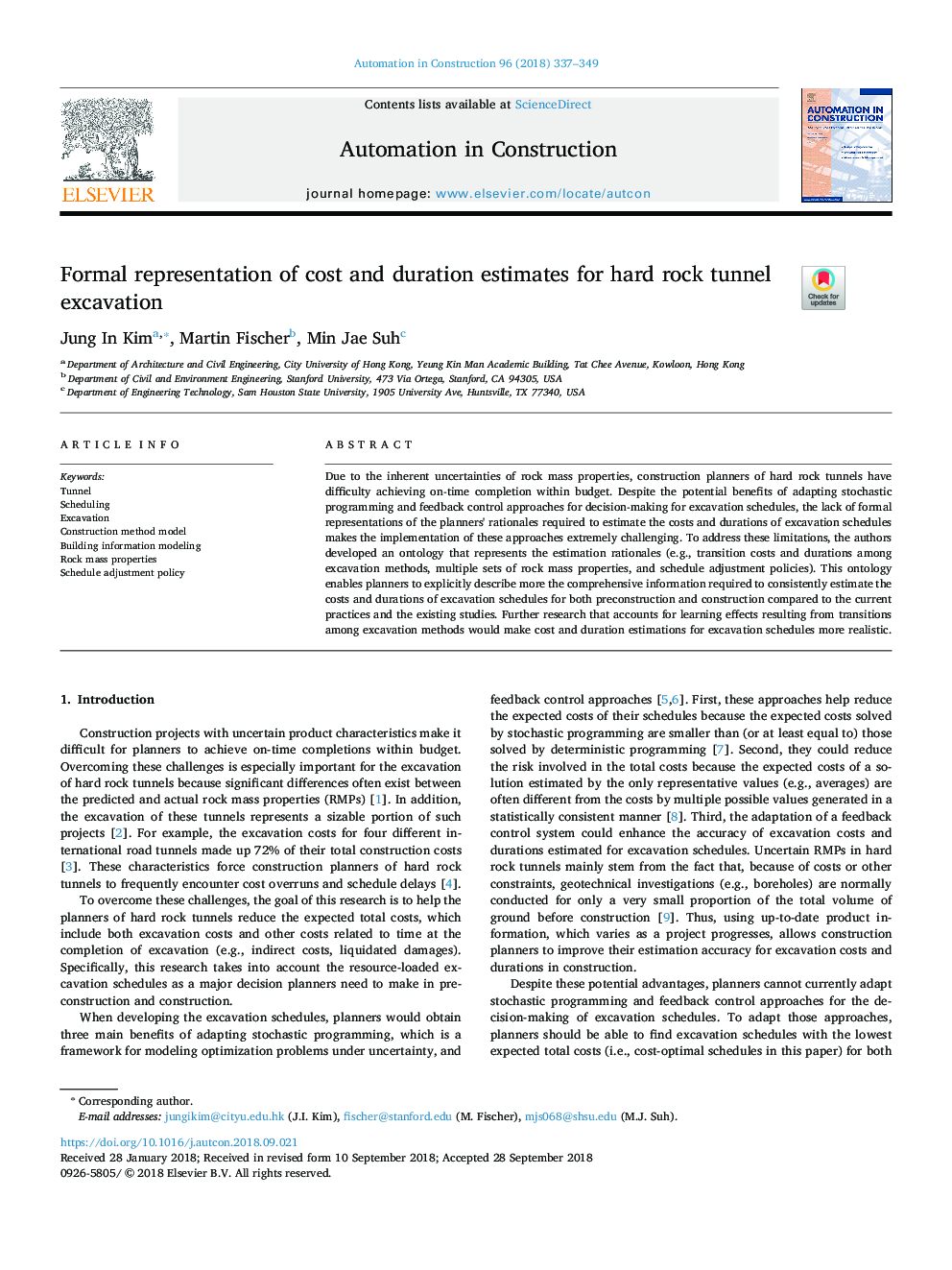| Article ID | Journal | Published Year | Pages | File Type |
|---|---|---|---|---|
| 11030200 | Automation in Construction | 2018 | 13 Pages |
Abstract
Due to the inherent uncertainties of rock mass properties, construction planners of hard rock tunnels have difficulty achieving on-time completion within budget. Despite the potential benefits of adapting stochastic programming and feedback control approaches for decision-making for excavation schedules, the lack of formal representations of the planners' rationales required to estimate the costs and durations of excavation schedules makes the implementation of these approaches extremely challenging. To address these limitations, the authors developed an ontology that represents the estimation rationales (e.g., transition costs and durations among excavation methods, multiple sets of rock mass properties, and schedule adjustment policies). This ontology enables planners to explicitly describe more the comprehensive information required to consistently estimate the costs and durations of excavation schedules for both preconstruction and construction compared to the current practices and the existing studies. Further research that accounts for learning effects resulting from transitions among excavation methods would make cost and duration estimations for excavation schedules more realistic.
Related Topics
Physical Sciences and Engineering
Engineering
Civil and Structural Engineering
Authors
Jung In Kim, Martin Fischer, Min Jae Suh,
